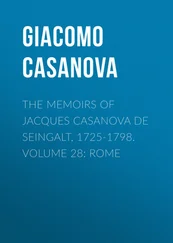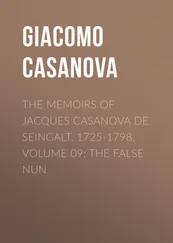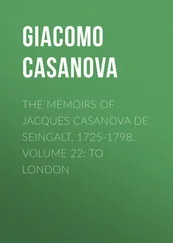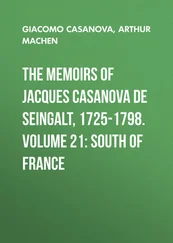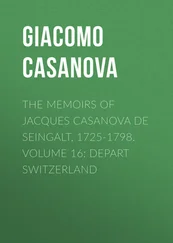Fine and delightful as the ear was, it blushed to hear the words. Indeed, the girl blushed along her whole face. For the first time she felt embarrassed. There was something impudent, aggressive, almost improper in the words, as there is in every lie told at important moments. But there was something familiar and encouraging in them too, something reminiscent of certain patriotic songs, the kind of songs that people had been singing for centuries, in the shadow of public monuments and other sacred places. “Unique,” he had said, and the girl blushed as if she had heard something deliciously risqué. She blushed because she sensed the lie, and then the man fell silent again, flushed by success and a little amazed at the inevitability of it all, knowing it could not be otherwise, that there was no greater lie to be told. And both of them felt that this lie was in some way a secret truth. So they kept silent, the pair of them, somewhat disoriented. They sensed that, in its own mysterious way, “unique” was, like all eternal verities, a truth, that is to say as much a truth as when someone pronounces the words “Motherland!” or “So it must be!” and begins dutifully to weep. And however vulgar and shameless the sentiment may be, such a person feels that the grand mendacious cliché is, in some deep way, as true as his patriotism or sense of destiny, or indeed the words “You are wonderful, unique.” And so, because they could not think of anything else to say to each other, they set to kissing.
The two mouths engaged, and, almost immediately, some force started them rocking to and fro. This rocking had an incidental soothing effect, as when an adult takes a child into his arms, the evening drawing on and the child having exhausted itself and grown melancholy with running about. And the adult says something like, “That’s enough play, you are tired, little one; go and rest awhile. Don’t do anything, just close your eyes and rest. How hot you are! You are really flushed! And how your heart beats!… Once you’ve calmed down, a little later in the evening, I’ll give you a nice piece of Neapolitan wafer.” And then the girl, somewhat capriciously, even haughtily, will sometimes pull her lips away like a child protesting, “But I don’t like Neapolitan wafers!” They kissed again. The rocking, that sad strange rocking, gradually drew them into the element of the kiss which was exactly like the sea, the rocking of which signifies relaxation and danger, adventure and fate. And like people who, in their dizziness, slip from the shores of reality and are amazed to observe that it is possible to survive and move in a new element, even in the alien element of fate, and that perhaps it is not really so awful to drift away from the shore with such slow rocking motions, they began to lose all contact with reality and slowly to advance, without intention, without any specific desire, toward annihilation, occasionally, between kisses, glancing dreamily round, as if raising their heads from the foam before falling back into the dangerous, joy-bringing, indifferent, rocking element, to think, “Perhaps it is not so awful being annihilated! Perhaps it is the best life can offer, this rocking and forgetting, the point at which we lose our memories and everything grows vague, familiar, and misty.” The arms they had opened with such gestures of begging and inviting, gripped and held each other’s heads.
And so they would have continued had not Balbi stepped in at that moment. He hesitated by the door and in a fearful voice said: “Giacomo, don’t do it!”
Slowly they drew away from each other, loosened their hold, and glanced about them in confusion and curiosity. Now that he had let go of the girl, the man noticed that he was still gripping the dagger in his hand, in the left hand with which he had embraced the girl’s waist.
W hen the girl had left the room, her head bowed, treading as silently as only those who are used to going about barefoot can tread, Balbi spoke. “I was really frightened. You were holding that dagger in your hand as if you were about to stab her.”
“I’m not a murderer,” he solemnly replied, a little short of breath as he put the dagger back on the mantelpiece. “I am a writer.”
“A writer?” gasped Balbi. He left his mouth open for a while. “Have you written anything?” he asked incredulously.
“Written? Of course I’ve written,” muttered the stranger. He spoke grudgingly, as if he hardly thought it worth his while to answer a companion so far below him that he was sure he wouldn’t understand. “I’ve written a great many things. Poems, for example,” he proclaimed triumphantly, confident he had the evidence to back his claim.
“For money?” Balbi inquired.
“For money, among other things,” he answered. “Real writers always write for money, you blockhead. I don’t suppose you’re capable of understanding writers, Balbi. It’s a pity I didn’t stick this knife between your ribs that time on the outskirts of Valdepiadene when we were on the run and you almost got us into trouble. Then, perhaps, I might really have been the murderer you thought I was a few moments ago. There would also have been one less idiotic rogue in the world and the world would have thanked me for it! I never cease to regret the day I rescued you from that rat-infested gutter.”
“You would not have escaped without me, either,” the friar answered calmly. He was not easily insulted. He sat down in the armchair, spread his legs, and crossed his hands over his full belly, blinking and twiddling his thumbs.
“True enough,” came the matter-of-fact answer. “When a man is in trouble he will grasp at anything, even the hangman’s rope.”
They were weighing each other up. “Yes, it was a pity,” he repeated, and shrugged his shoulders to demonstrate how pointless it was for a man to dwell on all the things he had failed to do in life. “And you, potbelly, you don’t understand, are incapable of understanding, that I am a writer. What have you ever written in your life? Love letters, two-a-penny, to sell on the market to servants with holes in their shoes, a few fake contracts to self-employed tradesmen and petty criminals, some begging letters with which you might trouble your betters, people who were sufficiently easygoing and forgetful not to send you to the galleys.”
“All the same,” replied the friar in his mildest, friendliest manner, “it was writing that saved me, Giacomo. Cast your mind back. We wrote each other such letters, we might have been lovers. Long, ardent letters they were, and Lorenzo the warder, was our go-between. We made our acquaintance through those letters, told each other everything, both past and present. If I were incapable of writing I would never have started a correspondence with you, nor would I ever have escaped. You despise me and look down on me. I know you would happily kill me. You are not being fair. I know as well as you do that writing is very important, a great source of power.”
“Power?” his fellow fugitive repeated, and surveyed the friar haughtily from under suspicious, half-closed eyelids, his head thrown right back. “It’s far greater than that. It is not a matter of ‘sources,’ Balbi, but power itself. Writing is the one and only power. You are right, it is writing that freed you. I really hadn’t thought of that. The scriptures, the sacred writings, are right when they tell us that even fools are not without grace. Writing is the greatest power there is: the written word is greater than king or pope, greater than the doge. We are living proofs of that. It was in writing that we plotted our escape, letters formed the teeth that cut through our chains, letters were the ladder and the rope on which we let ourselves down, it was letters that led us back from hell to earth. Some say,” he continued, “that letters can lead us from earth up to heaven too. But I don’t believe in their power to do that.”
Читать дальше







